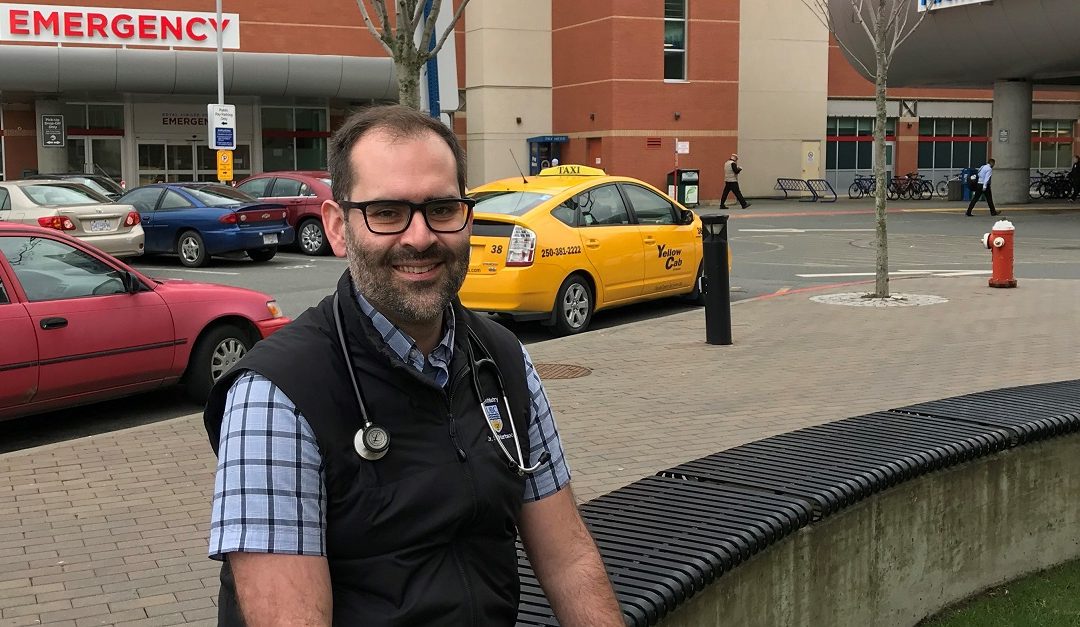By Stacey McLachlan. Originally published in the summer 2020 issue of Business Class magazine.
If you’re seeking a doctor who can advise you on financial planning while he writes you a prescription, look no further than Stuart Hartsook, BCom ’06.
While Hartsook may not be actively flexing his financial management skills as he tends to patients in his first year of medical residency, the fact is that his dual degrees make him stand out from the crowd—and might even give him an advantage in his new career as a medical doctor.
Hartsook’s career change wasn’t totally surprising, looking back. In high school, he enjoyed all his science classes. But as a social 18-year-old, entering the healthcare field had felt like too much of a commitment; he was hungry to get on a path with marketable skills and get life started. So he jumped into the world of business school and co-ops instead. After seven years on a finance track, however, Hartsook started to feel stuck. “I didn’t feel happy or energetic to be going to work on a daily basis,” he says. On a bigger level, he simply didn’t see a fulfilling, overarching purpose in the job anymore.
There was no big “a-ha” moment that inspired him to do a career pivot: just a nagging feeling as time went by that something was missing. “Introspection and self-evaluation were really important pieces in trying to determine what to do and where to go,” he says. “Being fulfilled and having a sense of purpose are high on my list of priorities in a career, and medicine checked those boxes.”
So he said goodbye to the steady paycheques and seniority at the bank, and went back to square one. “Telling people you’re taking your career 180 degrees can come off as sounding pretty crazy, but as cheesy as it is, you’ve got to follow your gut and heart,” he says.
Fears and doubts were racing through the 29-year-old’s mind as he stepped into the classroom again. “It obviously brought up a lot of self-doubt,” smiles Hartsook. “I was 10 years older than everyone, and the anxiety was bubbling up.” Was he too old for this? Would he be able to develop connections with his classmates? How did studying work again?
But medicine wasn’t as different from commerce as Hartsook had initially thought.
According to guidelines from the Royal College of Physicians and Surgeons of Canada, the ideal doctor is expected to be a communicator, a leader, a collaborator, a scholar and a professional (as well as an expert in human biology, of course).
“Most people really only think of the ‘medical expert’ facet, but that part is actually easier to learn than soft skills that might not come as naturally,” says Hartsook. “It was the four years I spent doing the commerce degree that really stretched my ability to collaborate with people from different backgrounds and improved my communication and public speaking skills—it makes me think a commerce background is probably even better than science.” With that first degree, Hartsook had developed a soft skill set that turned out to be highly desirable in the medical field.
Today, he’s in his first of five residency years, specializing in psychiatric care, and he’s loving every minute of it. “It was absolutely, definitely the right decision, despite how scary it was to make it,” he says. “Ultimately, you could be stuck in a job for 30 years. Is this how you want to spend it?” Some might see a career change like this one as a transformation—but for Hartsook, the journey from commerce to medicine has been an evolution.


